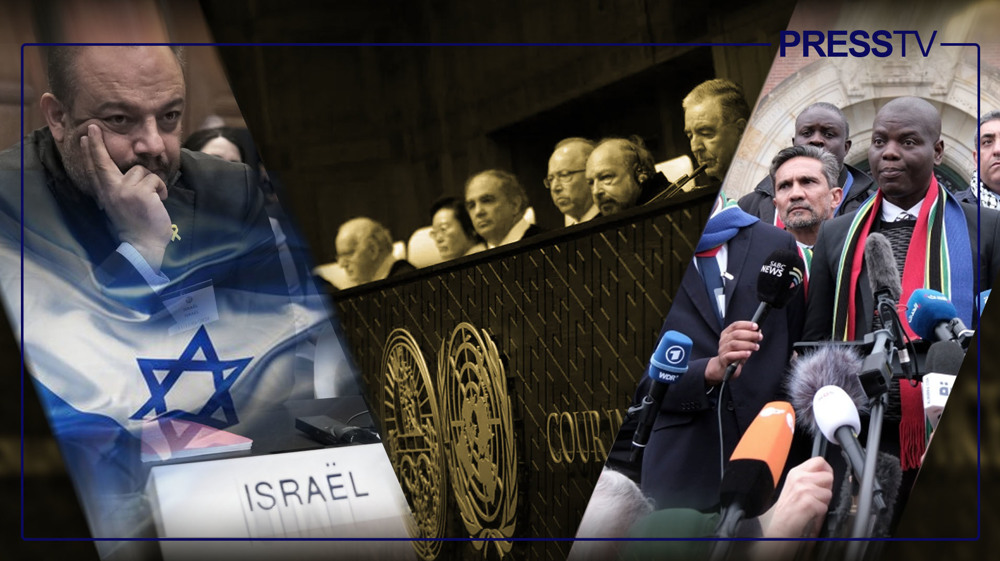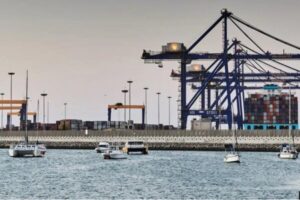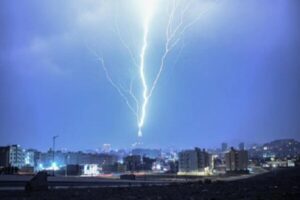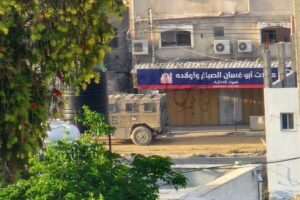By Ivan Kesic
South Africa on Thursday presented compelling evidence of the Israeli genocide in the Gaza Strip before the International Court of Justice (ICJ), which was followed by incoherent rhetoric by a team of lawyers representing Tel Aviv, who tried to defend the indefensible.
The team of lawyers representing the South African government presented an exhaustive, well-researched 84-page document at the top UN court in the Hague, explaining that Israel is committing genocide against Palestinians in Gaza, by using a variety of methods.
They include causing serious bodily and mental hurt, forced evacuation of people, widespread hunger, and bringing about “physical destruction” of people in the small besieged territory.
In their opening remarks, the South African team said they “place Israel’s genocidal acts and omissions within the broader context of Israel’s 56-year occupation, 25-year apartheid, and 16-year siege imposed on the Gaza Strip.”
“The point is not simply that Israel is acting disproportionately. The point is that the prohibition on genocide is an absolute,” said Vaughan Lowe, one of the South African lawyers.
More than 23,500 people have already been killed in Gaza in the past 100 days, a vast majority of them children and women. Thousands more are lost under rubble and presumed dead.
Physicians, aid workers and journalists have also been killed deliberately by the Israeli regime’s forces, and the damage to the civil infrastructure is enormous and disproportionate to anything seen before.
On Thursday, the legal team representing South Africa requested that the court issue emergency measures to stop the relentless aerial bombardment and ground invasion of the Gaza Strip.
With this action, South Africa showed that its people still remember and respect Nelson Mandela’s words: “We know very well that our freedom is incomplete without the freedom of the Palestinians.”
In its Friday counter-submission, lawyers representing the Israeli regime laid out its “defense”.
Led by veteran British lawyer Malcolm Shaw, the team of lawyers argued that South Africa’s application “distorted” and “decontextualized” Israeli military actions in Gaza.
The team of lawyers representing the regime also made some outlandish claims, repeating lies peddled by the Israeli and Western media, such as the beheading of babies and hospitals not being bombarded.
The lie about Israeli children “beheaded” by the Hamas was debunked long ago. Even the Israeli media recently admitted that the Oct. 7 killings were linked to the regime’s military in line with the so-called Hannibal Directive.
The claim that no hospitals have been bombed by the Israeli regime in Gaza also holds no water. Images of dozens of hospitals being attacked and inmates being killed have been doing rounds on social media.
Such was the confusion that Shaw misplaced a page of his presentation, cutting a sorry figure.
Tal Becker, a legal adviser for the regime’s foreign ministry, presented opening statements, arguing that South Africa had “ignored” the events of October 7 and that Israel had “the right to defend itself.”
He also told the court that the Genocide Convention was drawn up in the aftermath of the Holocaust and that the phrase “never again” is one of “the highest moral obligations” for Israel.
Becker rejected requests for an interim order, arguing South Africa is trying to deny Israel “the opportunity to meet its obligations” to the captives.
Legal experts were quick to criticize Becker’s presentation, primarily because it moralizes based on anachronistic events from World War II, irrelevant to contemporary politics.
This represents the continuation of decades of the Zionist victimhood narrative, by which the Israeli regime’s crimes and dirty policies are sought to be justified by victims from the past.
Becker manipulatively accused South Africa of ignoring October 7, specifically Operation Al-Aqsa Storm, the catastrophic Israeli military defeat that the regime likes to manipulate to be an alleged “war crime.”
In reality, South Africa resolutely placed the genocide in the context of the long-term Israeli occupation, apartheid and siege of Gaza, which the Israeli regime ignored in its presentation and invoked its own interpretation on October 7.
Legal experts point out that Israel’s arguments were abysmally weak and incoherent because no events of that date give the right to a war crime of a disproportionate nature.
They further argue that as an occupying entity that has grabbed the land of Palestine by force, the Israeli regime does not have “the right to self-defense” so this argument also does not hold water.
In 2003, the ICJ ruled that an occupying power cannot claim the right to self-defense, in a case involving Israel’s construction of a separation wall in the occupied West Bank.
The Israeli regime’s legal team claimed that South Africa’s accusation about Zionist officials harboring an inherent intent to destroy the Palestinian people was based on “random assertions.”
That is also a shoddy argument since top regime officials, including parliamentarians, the war minister, the president and the premier have called for genocide and ethnic cleansing of Palestinians.
After Israel’s final “defense,” South Africa’s Minister of Justice Ronald Lamolathe said the Israeli regime has suffered a shameful defeat.
He also rejected flawed Israeli denials, stressing that genocide “is never declared in advance” and evidence for 13 weeks is at the disposal of the ICJ that shows the Israeli regime has committed genocide.
Ivan Kesic is an independent journalist and researcher.
(The views expressed in this article do not necessarily reflect those of Press TV)




